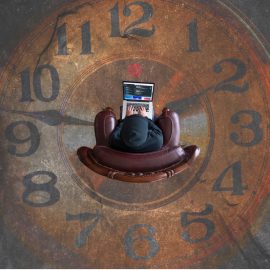

This article is an excerpt from the Shortform book guide to "Poor Charlie's Almanack" by Charles T. Munger. Shortform has the world's best summaries and analyses of books you should be reading.
Like this article? Sign up for a free trial here .
What is the ostrich effect bias? How dangerous is denial syndrome?
The ostrich effect bias is the tendency to avoid negative information and refuse to accept that objective truth exists because it causes pain. This bias is dangerous because it can lull you into believing that a situation is better than it really is, which causes things to deteriorate further.
Read on to learn more about the ostrich effect bias.
What Is the Ostrich Effect?
Denial is denying that an objective truth exists because it causes pain.
It’s often mixed up with love, death, and chemical dependency
Denial can possibly be helpful in these situations:
- If the objective truth is not available, and you need denial to persevere
- If the common wisdom is incorrect, and denying it helps you make better decisions
Why It Evolved
The ostrich effect bias likely evolved because avoiding pain probably helped people continue to survive in emotionally difficult situations.
How It Can Be Harmful
The ostrich effect bias can only worsen your decision-making because the truth exists and you refuse to accept it.
The bias compounds consistency tendency and sunk cost fallacy. Say you’ve lost a lot of money in a bad venture.
- Denial tricks you into thinking the situation is better than it really is.
- The sunk cost fallacy prompts you to put more money after bad.
- Self-consistency makes you behave with inertia so it’s harder not to behave differently than you have.
Examples of the Ostrich Effect Bias
- Denial is the first stage of grief, suggesting it’s part of a coping mechanism.
- Substance abusers tend to deny they have a problem as they further deteriorate.
Antidotes
To make the truth less painful, try exposure therapy to the truth. The more you repeat the truth, the less painful it’ll become.
Become comfortable with accepting mistakes. Then facing the truth won’t be as painful.

———End of Preview———
Like what you just read? Read the rest of the world's best book summary and analysis of Charles T. Munger's "Poor Charlie's Almanack" at Shortform .
Here's what you'll find in our full Poor Charlie's Almanack summary :
- A collection of Charlie Munger’s best advice given over 30 years
- Why you need to know what you’re good at and what you’re bad at to make decisions
- Descriptions of the 25 psychological biases that distort how you see the world






